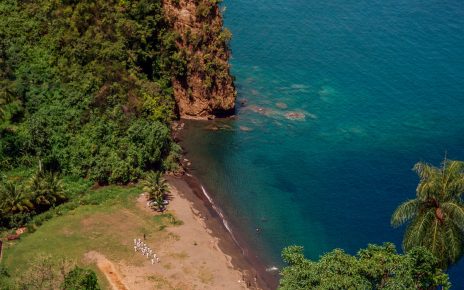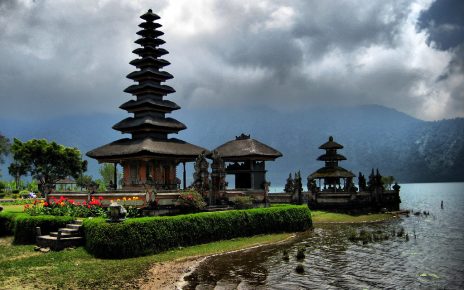Bali’s lush landscapes, vibrant culture, and pristine beaches have long made it a top destination for travelers seeking a slice of paradise. However, the rapid pace of development and tourism growth in recent years has cast a shadow over this idyllic island. In a bid to preserve Bali’s natural beauty and cultural heritage, some experts are now proposing the creation of a special tourism authority. Could this be the key to saving Bali from overdevelopment? Let’s delve into the potential benefits and challenges of this groundbreaking idea.
Exploring the Impacts of Overdevelopment on Bali’s Tourism Industry
With the rapid growth of tourism in Bali, overdevelopment has become a pressing issue that threatens the island’s natural beauty and cultural heritage. The influx of hotels, resorts, and other commercial properties has led to environmental degradation, loss of traditional Balinese culture, and overcrowding in popular tourist destinations.
A possible solution to this problem could be the creation of a Special Tourism Authority dedicated to managing and regulating the tourism industry in Bali. This authority could work closely with local communities, government agencies, and tourism stakeholders to implement sustainable tourism practices, preserve the island’s unique identity, and protect its delicate ecosystems. By enforcing strict guidelines on development projects, promoting eco-friendly tourism initiatives, and supporting local entrepreneurship, Bali can strike a balance between economic growth and environmental conservation.

The Need for a Special Tourism Authority to Preserve Bali’s Culture and Environment
The lush island of Bali has long been a popular destination for tourists seeking sun, surf, and spirituality. However, the rapid pace of development on the island is threatening to destroy the very culture and environment that draw visitors in the first place. To combat this problem, many experts are advocating for the creation of a special tourism authority dedicated to preserving Bali’s unique identity.
A special tourism authority with a focus on cultural and environmental preservation could implement policies and regulations to ensure that development on the island is sustainable and respectful of Bali’s traditions. Such an organization could also work to promote responsible tourism practices and educate visitors about the importance of preserving Bali’s natural beauty and cultural heritage. With the right leadership and resources, a special tourism authority could be the key to saving Bali from overdevelopment and ensuring that future generations can continue to enjoy and appreciate all that this magical island has to offer.

Recommendations for Sustainable Tourism Management in Bali
Bali is facing a critical juncture in its tourism development, with rapid growth threatening the island’s natural beauty and cultural heritage. To tackle this issue, the creation of a Special Tourism Authority could provide the necessary oversight and regulation to ensure sustainable tourism management. This authority would have the power to enforce responsible development practices, protect environmental resources, and preserve Balinese culture for future generations.
By establishing a Special Tourism Authority, Bali can avoid the pitfalls of overdevelopment and mass tourism that have plagued other popular destinations. Through collaboration with local communities, government agencies, and industry stakeholders, this authority can implement strategies that prioritize sustainability, conservation, and responsible tourism practices. Embracing a holistic approach to tourism management will not only benefit Bali’s economy but also safeguard its natural and cultural treasures for years to come.

Collaborative Efforts to Balance Economic Growth with Environmental Conservation in Bali
Collaborative efforts between local government, tour operators, and environmental activists have been crucial in finding a balance between economic growth and environmental conservation in Bali. One proposed solution to prevent overdevelopment on the island is the creation of a Special Tourism Authority. This authority would be responsible for overseeing development projects, ensuring they adhere to strict environmental guidelines, and promoting sustainable tourism practices.
By establishing a Special Tourism Authority, stakeholders would be able to work together more efficiently to protect Bali’s natural beauty while still allowing for economic growth. This collaborative approach would involve regular meetings and consultations between government officials, conservationists, and business owners to ensure that any new developments are in line with Bali’s eco-friendly goals. In this way, the island can continue to thrive as a top tourist destination without sacrificing its environmental integrity.
In conclusion, the creation of a special tourism authority in Bali could be the key to preserving the island’s natural beauty and preventing overdevelopment. By implementing sustainable tourism practices and regulations, we can ensure that future generations will be able to experience the magic of Bali for years to come. It’s time to take action and protect this stunning paradise before it’s too late. Join us in the fight to save Bali from overdevelopment and help preserve its unique culture and environment for future travelers to enjoy. Let’s work together to make a difference and create a brighter, more sustainable future for Bali.





